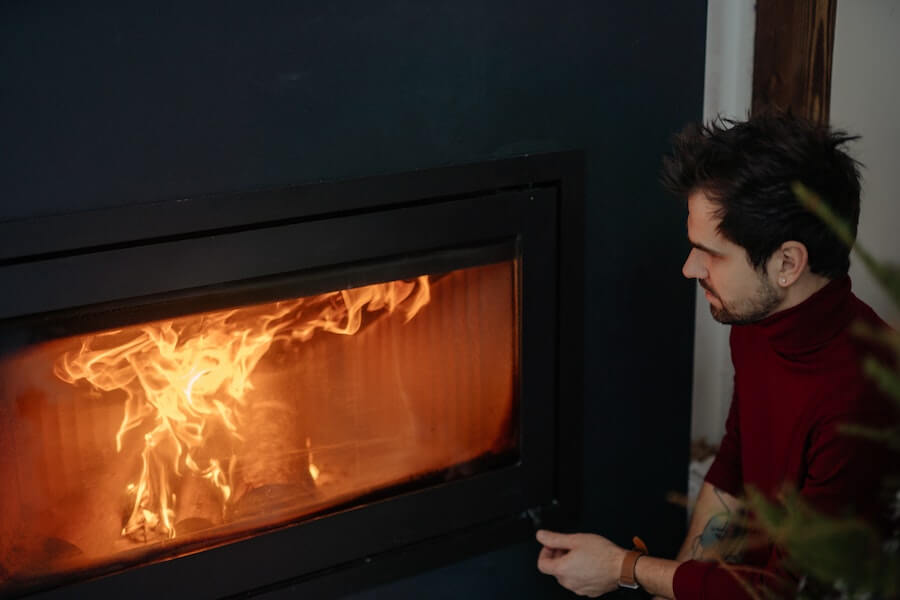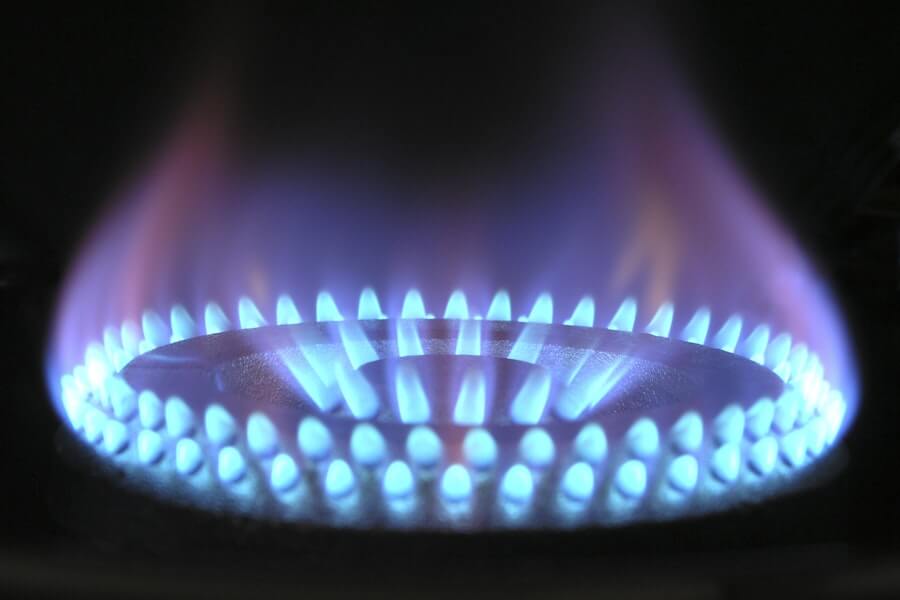Heating is integral for your home, no matter the time of year. There is a regulatory measure that on average, each room in your home should have a temperature between 18 – 21°C. But what exactly is the best method to handle your heating, gas, or electric? In this article, we will look at whether gas or electric underfloor heating is cheaper for heating your home and give you the results that will efficiently heat your home.
- What’s the difference between gas or electric underfloor heating?
- Pros and cons of gas heating
- Advantages of gas heating
- Disadvantages of gas heating
- Pros and cons of electric heating
- Is gas or electric heating better for the environment?
- Installation and Running costs of Gas or Electric Heating
- Alternate forms of heating
- FAQs
What’s the difference between gas or electric underfloor heating?
The main concern regarding heating is inevitably cost. Even with the ‘cost of living crisis’ since 2022, it is imperative to keep track of how much your heating costs to get your value for money.
So, what are the main differences?
- Gas-based systems: Gas-based systems are usually LPG or oil-based and are powered by a boiler to help burn fuel and heat water. Gas systems circulate the water through radiators or pipes under the flooring in your home to heat it. As the radiators warm up, the rooms will gradually warm up too. This process is known as convection and is commonly referred to as central heating.
- Electric heating systems: These rely on a separate heating appliance to generate heat in each room, whether this is a plug-in or a bar heater. Electric heating systems are more sophisticated and complex than gas.
Is your home off-grid? Find out how you can heat your home here.
Pros and cons of gas heating
As the most conventional heating method, you would expect gas to be the go-to choice for heating your home. That does not mean it is perfect. After all, gas companies will charge different prices for having gas heating installed and maintenance repairs, which can be a massive factor in whether gas or electric is cheaper.
Advantages of gas heating
- Cheap to run.
- Energy efficient boilers.
- Easy heating system controls such as smart thermostats.
Disadvantages of gas heating
- Fossil fuels are burned in gas boilers, which can harm the environment, such as global warming and climate change.
- From 2025, the government will make it illegal to have gas and oil boilers installed in new-built homes.
- Annual maintenance is needed for a gas boiler, with prices varying depending on the work needing repair.
- Poorly maintained gas boilers can be dangerous and leak carbon monoxide.
Pros and cons of electric heating
In contrast, electric heating is becoming increasingly popular in new-built homes and can be managed much easier than gas heating.
Advantages of electric heating
- More products are available to purchase as a small electric heater, such as storage heaters and air-source/underfloor heating pumps.
- No carbon dioxide output, making it more planet friendly.
- Low maintenance costs.
- Smart heating controls to manage heating efficiently.
- Better home air quality.
- Energy tariffs, including economy 7 and economy 10 can help you pay less on your electricity bills, depending on how often you use it.
Disadvantages of electric heating
- More expensive to run than gas heating systems.
- Expensive to install, such as air-source heating pumps.
- Storage heaters manufactured and installed before 2018 have been proven to be less efficient.
- Basic models can lead to wasted energy.
- Older models contain asbestos and should be checked with the AIC (Asbestos Information Centre) if you have concerns towards this.
Is gas or electric heating better for the environment?
in 2023, we are always trying to be a bit more sustainable, and do everything we can to benefit the planet. But is gas or electric heating better for the environment?
Gas is a fossil fuel, and when heating this in your home, will release carbon dioxide, which is harmful to the atmosphere.
Electric heating, on the other hand, only needs plugging into a plug socket to generate heat, which is connected to the mains. However, this can also cost more money to run. Is it worth the extra price for more planet-friendly heating with electricity than causing global warming with gas heating? This is for you to decide when choosing whether to have gas or electric heating systems installed.

Installation and Running costs of Gas or Electric Heating
Having electric heating installed can be more expensive. In the long run, running costs can become cheaper, depending on how often you use it.
Heating pumps should have a coefficient energy balance of roughly 3.5 or more (CoP). This means that every unit of energy that is used will produce 3.5 units or more of heat.
On the other hand, gas central heating is not as effective and is just as expensive to keep running. It also depends on whether your home has a gas mains supply either, as installing a gas pipe is costly . Boiler and radiator installation cost range between £3,500 and £5,000.
Heating pumps are expensive to install, depending on your provider. There are government grants in place to help with upfront payments through the Boiler Upgrade Scheme.
Basic electric heaters can be as cheap as £20 to buy. However, a modern-day storage heater can range around £400, but are not needed for each room.
On average, a single kilowatt-hour (kWh) unit of gas can cost £4.65, whereas a kWh of electricity is usually 20p or more.
In contrast, conventional electric heating can cost double the amount of gas heating since electric heaters are 100% more efficient than gas. To make electric heating more cost-efficient, they can be timed to get more advantage during off-peak tariffs, when 1kWh of electricity is 10p or less.
Alternate forms of heating
Gas or electric heating are the primary heating systems for your homes. There are additional ways you can heat your home without having to worry about boilers taking up the wall space.
Radiators
Radiators are customised for every home. They can be linked up to both gas or electricity heating systems, and you can choose which radiators will best suit your needs around your home. These are available in various sizes, and are usually powered by water, they can be quickly warmed up through gas or electric heating.
Storage Heaters
Storage heaters are an electric heater and need special bricks made from clay to store the heat they create. These usually run overnight when electricity is the cheapest to run and release the energy it develops throughout the day.
Underfloor Heating
Underfloor heating is a series of pipes connected under your flooring. They generate heat from a water or energy source, like kettles. In its simplest form, electric underfloor heating warms up when it is switched on.
It also takes over a large surface area but can be tricky to install since you need a blueprint of your home to lay out the heating system. However, underfloor heating is efficient for keeping a room warm for longer without much cost since most heating usually is lost through the floor without it. Underfloor heating can be installed by yourself using kit builders or hiring a professional.
Learn how much does underfloor heating cost per m2.

Decision Time: Gas or Electric
As this article has laid out, both gas and electric heating systems have their positive and negative factors, and it is a matter of personal balance and preference in how you can make the most out of your heating and budget. For example, whilst cheap to install, electric heating can be more expensive to keep running, but can depend on off-peak tariffs too.
If you are concerned about environmental issues, gas heating will be a big factor in this since the burning of fossil fuels is harmful for the environment. The government is always looking towards new ways for making new-built homes more energy efficient and safer for the environment in the future, especially with the Net Zero targets for 2050. Electricity will be the way forward for heating homes and depending on how old your home or boiler is, you could be up for the opportunity to convert your old gas boiler into an electric one.
Further reading:
- What temperature should central heating be set at
- What temperature should underfloor heating be set at
FAQs
Is it cheaper to use gas or electric?
Electric heating is cheaper to run, with a single kilowatt-per-hour (kWh) of gas units costing around £4.65p whilst a kWh of electricity is 20p or more.
Is it cheaper to leave heating on low all day?
This is a myth! Instead, turning on your heating only when it is needed, such as when you are in your home, will save more energy than leaving the heating on all day, and will save on money too.
Is 15°C too cold for a house?
If your home is 15°C or less, you could be losing resistance to respiratory diseases, hence why the recommended night-time temperature is 18°C, whilst for daytime, is between 18°C – 21°C.
Sources
National Association of Tree Officers (NATO). (n.d.). NATAS Information Centre. [Accessed 03/01/23] Retrieved from: https://www.natas.co.uk/natas-information-centre/
UK Government. (28/03/22). Apply for the Boiler Upgrade Scheme. [Accessed 03/01/23] Retrieved from: https://www.gov.uk/apply-boiler-upgrade-scheme
